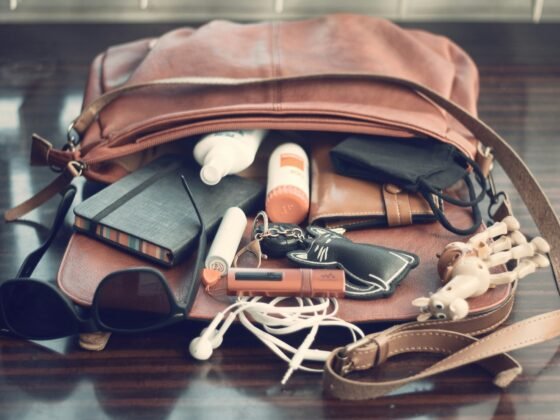Forget the 9-5 grind. Forget sitting in a stuffy flat. Forget walking down the same old streets, day after day.
You’re going on an adventure.
It’s easy to get caught up in the excitement of an upcoming long-term trip abroad. At this point, you probably just want to jump on the plane already.
There is, however, a fair amount of planning involved in a venture like this.
Scouring online for a comprehensive moving or travelling abroad checklist is a good start to help you focus on what needs to be done at home before you plan what to do on your travels.
The Backbone
It’s time to whip out that bucket list of countries you want to visit (I know you have one!).
Have you always dreamed of doing a coast-to-coast trip of the United States? Or have you vowed to complete the Great Wall of China?
Next, decide what form the trip is taking.
Are you going as part of a volunteer project or are you studying abroad? Will you be backpacking solo or with a close friend?
The answers to these questions will focus your planning efforts.
Budget
You travel plans can grow arms and legs when you don’t keep a strict budget in mind.
Initially, think about your travel plans as if money were no object. Assess how much this mammoth adventure would cost in total, using cost of living calculators to help.
Taking into account your income and how much you can realistically save until your departure, scale back the plans, prioritising the sights that mean the most to you.
Recalculate, accounting for a 20% emergency buffer, determining what your budget will be for every day in every area you visit.
Save, Save, Save
With your budget in mind, scrimp and save as much as possible!
Divide the total trip by the number of days you have until you go. This will give you a solid target saving figure to strive for, making it seem much more manageable!
Small savings here and there add up. Every time you go to buy a take-away coffee, ask yourself: “Trip fund or latte?”
Be mindful of your expenditure over the coming months. Look to reduce your overheads at home, selling unwanted clothes and furniture and cancelling disused subscriptions.
Home Life
Say you are jetting off for a year. What happens to your commitments at home?
Will you sub-let your property? Will you quit your job or can you work on the road?
These decisions will all feed into your budget calculations.
Health Check
Visit your doctor for a full medical check-up to nip any issues in the bud, rather than waiting to pay full whack in a foreign hospital.
Tell your doctor you’re travelling and gather their recommendations for keeping in top health.
If you have a repeat prescription, ask for a long-term stock to take with you.
Check which vaccinations you’ll need done for the countries you’re visiting.
Accommodation
Some people thrive in a hostel environment, eager and excited to chat to fellow travellers. Others need somewhere private to retreat to recharge in the evenings.
Whatever your preferences, investigate what accommodation options are open to you. Booking.com, Couchsurfing, and HostelWorld are very helpful!
Banks, Cards, and Bills
To avoid red flags being raised on your account, tell your bank that you will be travelling so you have no issues making foreign transactions.
Registering for a credit card that doesn’t charge for foreign transactions and that gives you travel rewards is also a smart move.
For any remaining bills, like your phone contract, see up automated bill payments to give you one less thing to worry about, allowing you to concentrate on soaking up the experience!
Travel Insurance
This is a must.
As optimistic as you may be about the trip, you have no way of predicting whether you’ll fall ill, lose or break your possessions, have flights cancelled, or be asked to return home at short notice for a family emergency.
Always be prepared.
There are some key things to look out for when purchasing travel insurance. Check that they cover the countries you’re visiting and the type of activities you plan to do.
You should check what the terms and limit of coverage is for:
- Medical expenses.
- Electronics.
- Stolen property.
- Hotel and transport cancellations.
Documents
Obviously, the number one document you’ll need is a passport! Ensure it’s in date for at least 6 months after your return date, just in case.
Check the Visa requirements for each country you’re visiting and obtain the relevant documentation.
Some countries demand evidence of your outbound ticket or accommodation bookings before granting you entry. Keep printed copies of your documentation in a secure folder.
Printing itineraries, extra copies of your passport, and having a real-life paper map will all come in handy too. Whilst Google Maps is a wonderful tool, it’s not comprehensive or reliable enough to navigate some parts of the world!
Packing
Don’t pack too much, don’t pack too little. Working out what to pack is tricky business.
Think about the activities you’ll be doing, the climate, and how long you’ll be away for.
Make a pile of everything you’d like to take with you, and chop that in half. Decide what you couldn’t live without while you’re on the road.
Essential items you’ll need no matter where you go are a strong backpack, sturdy shoes, a filtered water bottle, and a camera.
And make sure you leave room for souvenirs on your return journey!
Language
Learning a bit of the local lingo will enhance your travel experience, so brush up on key words and phrases before you go.
Knowing how to ask locals where to grab a bite to eat or what sights you shouldn’t miss will open your eyes to experiences you might otherwise miss out on!
Final Thoughts
Whilst it is important to plan properly for a long-term trip abroad, don’t get too caught up in every nitty-gritty detail.
Address these core issues and allow yourself the freedom to be spontaneous when you get there.
Meet new friends, eat good food, immerse yourself fully in the history and culture of your chosen destination, and most importantly – have a blast.
About the Author
Laura Fields is a writer, lover and dreamer, based in drizzly London town. A freelance journalist, she’s recently escaped from the topsy-turvy world of magazine journalism to write about home, travel and lifestyle on the web.












